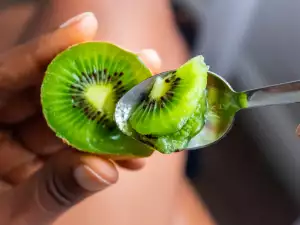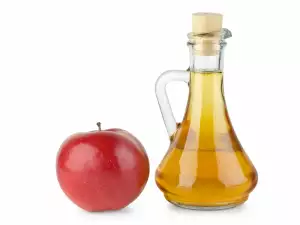Lemons are fruits with a sour taste and are a rich source of vitamin C. They have an alkaline effect on the body. 5% of lemon juice is acidic, corresponding to a pH value between 2 and 3.
Lemons are one of the healthiest gifts of nature, maintaining iodine balance in the body. Lemon juice contains 5-10 times more vitamins when part of a whole lemon. Lemons are the ideal fruit for detoxifying the body. 2 medium-sized lemons, about 3.5 oz (100 g), contain 1.1 g proteins, 0.3 g fat, 9.3 g carbohydrates, 2.8 g fiber and 2.5 g natural sugar. Plus they contain only 29 calories.
Lemonade is one of the drinks that are a must for summer. Lemon juice is also used for salads and cakes.
As it turns out, frozen lemons are much healthier.
After meticulous lab studies aimed at obtaining a synthetic extract from lemons in 1970, it was found that the resulting active substance adriamycin, used in chemotherapy cancer treatments with lemons, was far more effective than drugs prescribed by doctors.
The extract from lemons has positive effects in treating colon, breast, lung and more than 12 other different types of cancer, including prostate and pancreatic cancer. Further, the compounds found in lemons that fight cancer cells do not harm healthy cells. Lemons are cancer's archenemy and one of the most potent super-antioxidants.
Besides being rich in vitamin C, lemons also contain vitamin B6, potassium, folic acid, important phytochemicals such as flavonoids. In this manner, lemons have the properties of nutritional antioxidants and possess a natural detox effect.
Thanks to the lemon phytochemical in their composition, lemons help break down gallbladder stones and reduce the risk of the development of cancer in the digestive system. It also prevents calcification and formation of kidney stones.

Because of the high levels of vitamin C and flavonoids, consuming lemons strengthens the immune system and plays a role in preventing colds and flu.
The vitamin C in citrus fruits such as lemons is very effective in treating scurvy.
Lemons demonstrate multilateral antibacterial effects. Therefore, they are widely used for infection, inflammation, fungal infections, intestinal worms. With their vitamin P content they balance blood pressure. Additionally, they calm the nerves. They function as effective antidepressants.
How do we prepare frozen lemons, which are twice more effective in the above mentioned situations?
First, the choice of lemons is very important. They must not be damaged in any way, crushed or have any mold. To clean the lemons from pesticide residue, put them to soak in apple cider vinegar, then rinse thoroughly.
Afterward, put them in the fridge to sit for 24 hours. Once the time has elapsed, the chilled lemons can be used in salads, soups or other dishes, by grating them without peeling the rind.
The other option for freezing lemons is to cut them into slices and place them in ice trays in the freezer. When you need them, take them out and use them. You can make natural lemonade this way.




















Comments